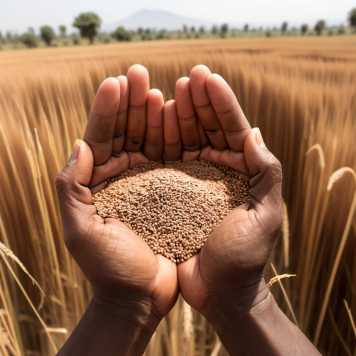How may cropland suitability change in Ethiopia in the future?
The next in a series of impacting papers by Dr Mosisa Wakjira from the HYDROL group is addressing possible changes in the suitability of Ethiopian croplands for growing staple cereals under rainfed agriculture for a range of climate change scenarios in the future. This research has implications for food security and sustainable agriculture in Ethiopia.

The study just published in external page Agricultural and Forest Meteorology is quantifying the changing suitability of Ethiopian croplands for staple cereal production (teff, maize, sorghum, and wheat) under various climate change scenarios, examining the effects of key factors like temperature, rainfall, and soil characteristics and their change in the coming decades. Mosisa's findings highlight the urgent need for tailored adaptation strategies to ensure food security and sustainable agricultural practices as Ethiopia faces climate-driven challenges. The research has important implications for the future of rainfed agriculture in Ethiopia and the available options for adaptation and resilience-building.
The research was funded by the E4D (Engineering for Development) Scholarship program.